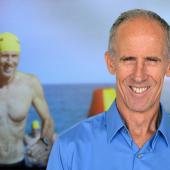Today, health care professionals are under more pressure than ever to take care of patients. But who is taking care of you? And what are you doing to take care of yourself? We sat down with naturopathic physician, certified nutrition specialist and sports massage therapist Dr Bethany Tennant, to talk about her practitioner self-care.
Key Takeaways
Are you seeing more patients than before?
I am definitely seeing more patients than before. Since we introduced telemedicine, we have been seeing more patients than ever. As a result, a year later, I'm busier than I've ever been. And it's nice to be able to offer patients an in-clinic option or telemedicine. So that's the way we've evolved and it's definitely picked up.
How have you ensured a good work-life balance?
The foundations of good health and stress management are no different for doctors than they are for our patients: Sleep habits, regular exercise and eating fresh, nutritionally dense food. It’s what we tell our patients to do and it’s exactly what we should be doing for ourselves!
For me, I focus on trying to work out between shifts. Even if I can't get to the gym, I take a ten-minute walk in between patients or during lunch break. Getting outside and moving is what is most important. The microbursts of exercise during the day have significant beneficial effects on my stress and my level of fitness too. It actually gives me energy!
Something else I’ve been focusing on lately is breathwork. So inhaling for four seconds, holding four seven, exhaling for eight. My patients may be familiar with it in a yoga setting but it's also something I've learned is used by Navy SEALs and professional athletes. It’s a really helpful way to navigate stress. It’s accessible, it's free and it's quick.
What’s your home routine?
At the end of the day, feeling tired and stressed out is normal. I think routines can be really helpful to get back on track, but they can also create pressure. So I've learned to give myself permission to be creative with my routines. For example, some weeks I'm really excited about cooking and meal prep. I feel dialled into eating at home. But some weeks I’m all about eating out. It's like a quicker, easier thing.
I think focusing on getting healthy food, making sure I get my vegetables is what’s important, rather than sticking to my routine no matter how I'm feeling. Get your vegetables and find ways to have fun as well. I make sure I connect with family and friends or find a good show to help make sure I step away from thinking about work.
Scrolling social media is not downtime
It’s so easy to lay on the couch during your downtime and pick the phone and start scrolling. That is not relaxing and it doesn’t in any way help clear the mind. You are cognitively engaged and you are also reacting emotionally to what you see and that is not relaxing. That’s why I always recommend to my patients to intentionally start a hobby.
Try something that you’ve never done before. Engage in crafts or learn something that doesn’t require you to be efficient or productive. Something to just be with. Like learning how to play the piano! You don’t have to be good at it but it is an activity that allows the mind to be free and in a sort of meditative state.
Find different things to explore - especially creative activities to help you keep recharging. The aim is to reduce your downtime and elevate your mood.
==
The opinions expressed in this Nutramedica program are those of the guests and contributors. They do not necessarily reflect the opinions of Nutritional Fundamentals For Health Inc.
This video is intended for licensed or registered health professionals and students of health professions only. These statements have not been evaluated by the Food and Drug Administration. Information contained in these programs is not intended to diagnose, treat, cure or prevent any disease.



